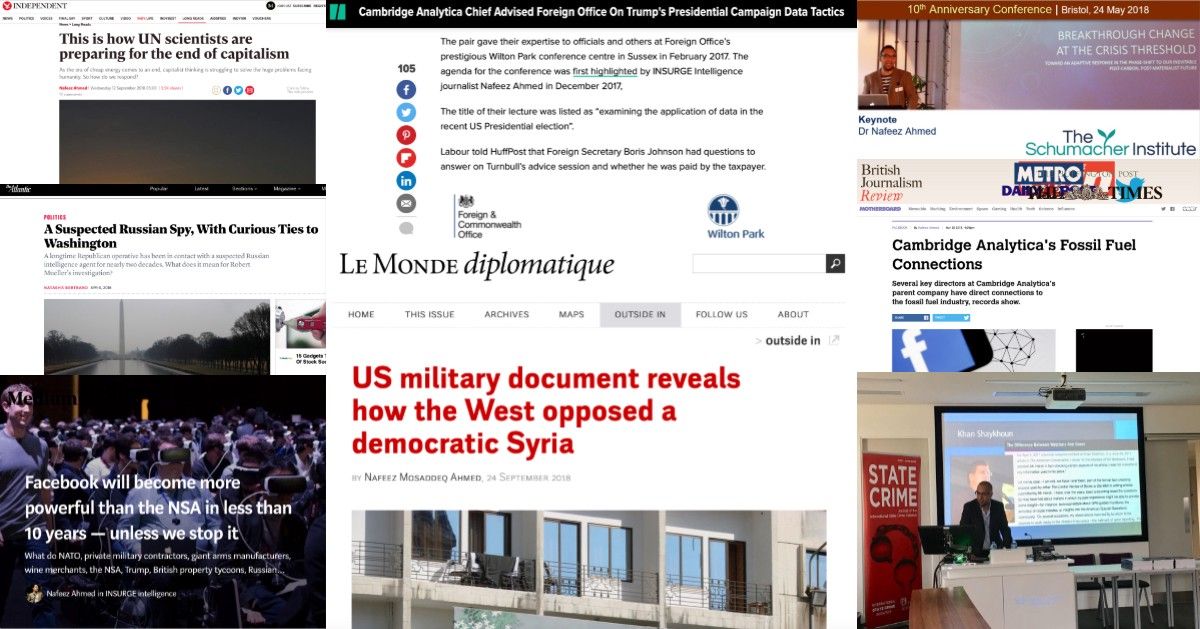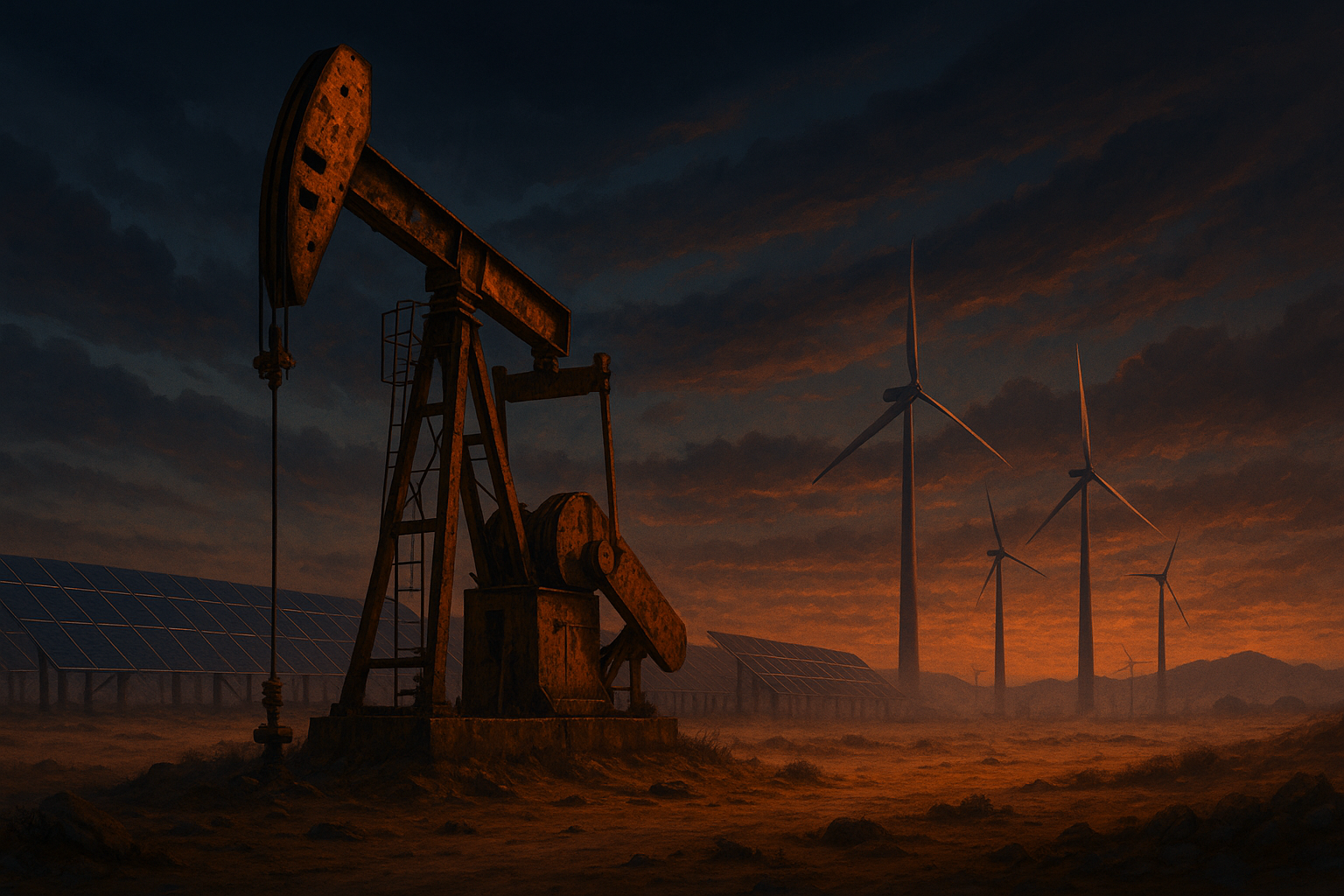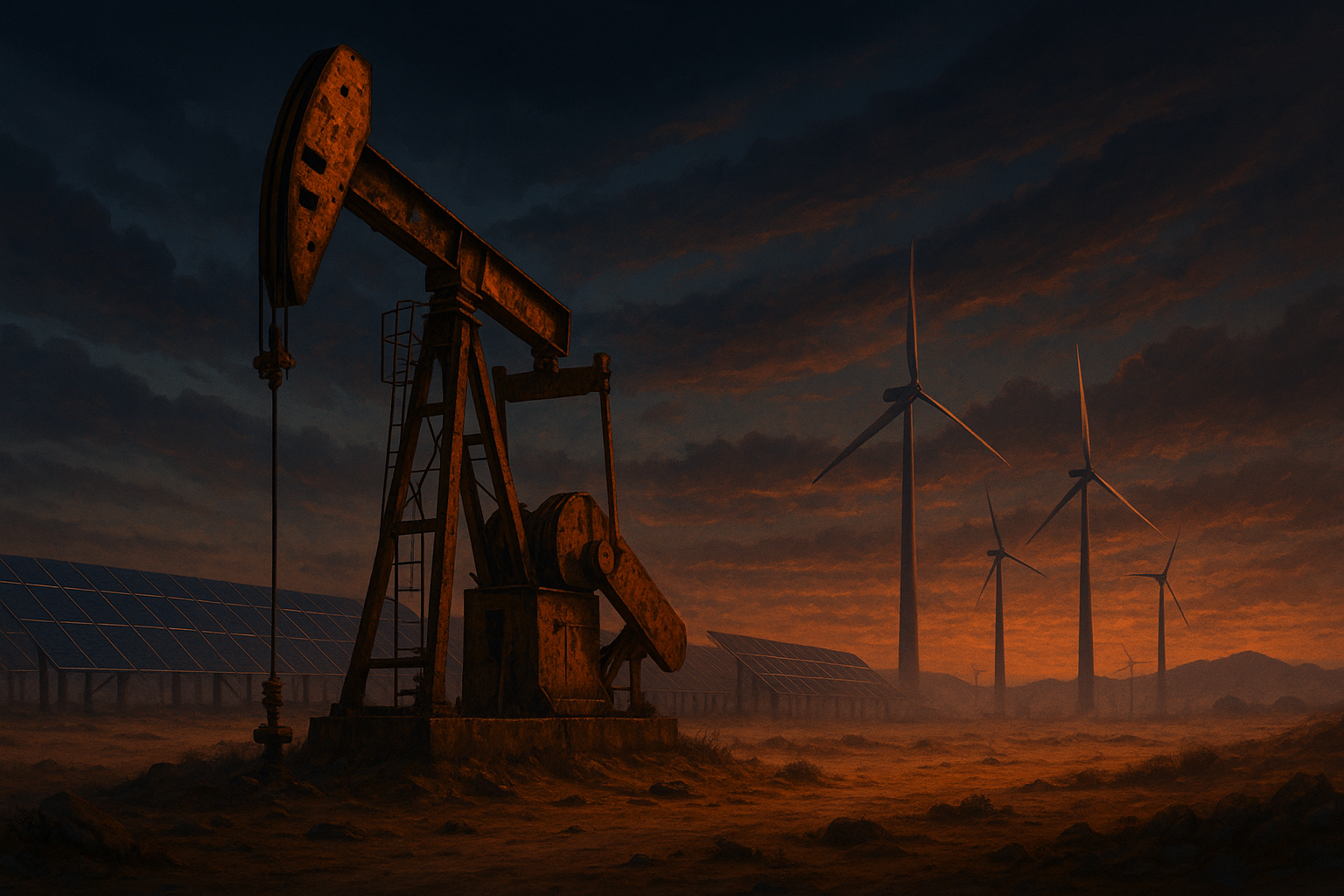Over the last few years, the sense that world events are accelerating in a way that is increasingly difficult to keep up with has become tangible.
At talks I often ask my audiences the same question. ‘Have you experienced a sense of acceleration in world events in recent years? That things are speeding up, become more unpredictable?’
Overwhelmingly the answer is yes.
The sense of acceleration is not an illusion. On the one hand, it’s an artifact of the transformation of the global information architecture, where information on world events is now transmitted instantaneously around the world.
On the other, it’s a direct consequence of the fact that world events are increasingly interconnected in complex ways that we are not used to grappling with. But like it or not, understand it or not, that complexity isn’t going away.
The underlying driver of the sense of acceleration is that we stand at the beginning of the end. The world as we know it has started to come to an end, and with it a new world is being born. Exactly what that world will look like is unclear.
What we know is that the old world, and all its old, outmoded paradigms, are gradually grinding to a halt.
Neoliberal finance capitalism as we know it faces the resurgence of crisis, the inevitability of slow growth, declining productivity, and the probability of another global collapse even worse than that which occurred ten year ago.
Climate change is already on track to lock in unprecedented disaster, making large parts of the world uninhabitable within coming decades, and if business-as-usual continues (which it does), that fate could extent to most of the world by end of century.
We remain dependent on fossil fuels, and despite some successes the renewable energy transition remains tepid and inadequate. Returns from investment in fossil fuel energy continue to decline, and the profitability of oil and gas ventures remains at risk, with the industry wracked with mounting debt.
Meanwhile, as these crises escalate, the focus of politics has been on denying the extent of the crisis while focusing on scapegoats that evade the necessity of systemic transformation: migrants, Muslims, Europeans, Mexicans, and so on.
As the old paradigm is increasingly unable to deliver what it promises in the way of prosperity and opportunity, this failure has given way to regressive nationalist ideologies. The last five years has seen an accelerating lurch to the extreme right and to the further militarisation of our societies.
But these ideologies do not offer real change. Instead, they offer the temporary solace of group-think and self-soothing identity politics.
Over the last year, I’ve applied the tools of investigative journalism and complex systems theory to track these crises, how they overlap, and where they might go. Here are some highlights:
Highlights from 2018
1. Trump’s Iran gambit
I started the year breaking the story of how the US State Department, under both the Trump and Obama administration, had spent $3m over the last few years attempting to undermine the Iranian regime through ‘democracy promotion’ activities. I unearthed documents tracing how this funding had played a role in some of the groups involved in recent protests in Iran.
2. Our renewable future
I reported exclusively on a new book by the former Chairman of Lightsource BP, Europe’s largest renewable energy company, which predicts the emergence of a new energy paradigm by 2050, with the potential to usher in a new, clean industrial economy. Most importantly, the new energy paradigm can only really work if it comes with a momentous cultural shift involving a comprehensive re-orientation in how we see our relationship to the environment.
3. The coming financial crash
I produced an exclusive report on how City of London financiers hosted a roundtable to discuss a major study by a former Bank of England economist predicting a US stock market crash of up to 50%. The fundamental trends highlighted in this study (and others) have not gone away, but only worsened since then. In the meantime, several other economists and forecasters later corroborated the dangers outlined in this report.
4. Independent publishing
Through my crowdfunded investigative platform INSURGE, I published a number of groundbreaking stories by some amazing contributors on how the Trump administration had ended up protecting ISIS in Syria; secret documents revealing the sordid history of US biowarfare in North Korea; how the Conservative government’s Brexit plan would kill food safety in Britain; how economic orthodoxy is in fact a ‘dangerous ideology’ endangering the planet; and an extensive, deeply researched critique of the history of US policy toward Russia after the Cold War; to name just a few.
5. Exposing Facebook and Cambridge Analytica
Elements of my major exclusive report on Cambridge Analytica and Facebook in December 2017 (‘Facebook will become more powerful than the NSA in 10 years — unless we stop it’) were picked up in the mainstream press in different ways in 2018.
HuffPost drew on my work to report on the British Foreign Office seeking advice from the Cambridge Analytica team on lessons learned from data analytics as applied in the Trump presidential campaign.
VICE ran my story unearthing documents which reveal Cambridge Analytica’s little-known ties to Big Oil.
The Atlantic quoted my work on links between Cambridge Analytica, the Trump team, and a cohort of US neoconservatives agitating for the break-up of Iraq.
I also broke a major story via VICE in collaboration with DeSmog UK on how Facebook is being used by fracking companies to monitor and track activists and protestors.
6. British Journalism Review endorses my journalism
My investigative journalism received a resounding endorsement from Peter Oborne (Daily Mail columnist and former Telegraph chief political commentator) in the prestigious British Journalism Review. The peer-reviewed journal, funded by some of the biggest heavy-weights in British journalism, said:
“Nafeez Ahmed is one of the most courageous and interesting investigative reporters of our time. An expert on the environment and the war on terror, he has published a number of books, blogged for The Guardian, and now runs a think tank. His articles can make very uncomfortable reading for the media and political elite. I recommend them.”
7. Joining the Schumacher Institute
I delivered the keynote lecture at the Schumacher Institute’s 10th anniversary conference, ‘From systemic failure to a transition of civilization’ based on my scientific monograph, Failing States, Collapsing Systems (which you access here for free). Around this time, I also received correspondence from the UK Military of Defence’s Defence Concepts and Doctrines Center confirming that senior staffers at the agency had read my book. Since then I’m honoured to have joined the Schumacher Institute as a Research Fellow.
8. Uncovering propaganda in Syria
I launched a major 100+ page investigative report on the Syria conflict, dissecting the role of propaganda in driving the war. The report was published in collaboration with Queen Mary University’s International State Crime Initiative and is the single most comprehensive study to date of how information was weaponised during the conflict by all actors — the Assad regime, Western governments, the Gulf states, Russia, Iran and rebel groups.
Based on this report, which excoriates the West’s self-serving approach as much as it exposes Russia’s cooptation of the antiwar movement to justify its own aggression, I was recently asked to consult on propaganda in Syria for the Dutch military.
I’m also working toward the goal of breaking this down into more digestable Syria stories based on this work. The first of this was run by Le Monde diplomatique and reported exclusively on US military documents revealing that the US was never interested in supporting democracy in Syria.
9. Forecasting a future of economic turmoil
Another major story I broke through VICE and The Independent unearthed a UN report forecasting the end of endless economic growth due to declining energy returns, and as a result, the demise of capitalism as we know it. The story went viral and generated a lot of secondary coverage and debate. The story was picked up by the Daily Mail, New Zealand Herald, Slashdot, and covered in a range of other places.
10. Confronting the mainstreaming of the far-right
I wrote a series of pieces for Media Diversified on how extreme right tropes had ended up making their way into the UK Comment Awards. Thanks to those pieces, I was named checked in The Times by the illustrious Melanie Phillips, who took objection to me outing her egregious promotion of far-right xenophobia.
So what’s next?
In 2019, I will continue to track the Crisis of Civilization through journalism and systems analysis — bringing together the threads of systems crisis, deep state shenanigans, and the rise of the far-right.
My focus this year, though, is not simply on diagnosing the problem — but on building frameworks to leverage this diagnosis in a way that can generate transformative actions to galvanise systems change.
My first major project for 2019, which I’m working on right now, builds on what I’ve learned over the last few years to develop a framework and actionable toolkit for collective intelligence: how we can effect real change in ourselves and in the world, by applying a holistic systems approach to both.
As the old paradigm fades, the urgent task is to plant the seeds of the new paradigm.
I’d like to thank my crowdfunders who have supported me this year for making this all possible. I’d like to thank my readers all over the world for following my work. I’d like to thank those who follow and share my work on social media and elsewhere. I’d like to thank my wife, my daughters and my son for keeping me on course with remembering what it means to be human.
2018 was a crazy year. 2019 will probably get crazier. Don’t sweat it. It’s time to roll up those sleeves and make our mark on history.








